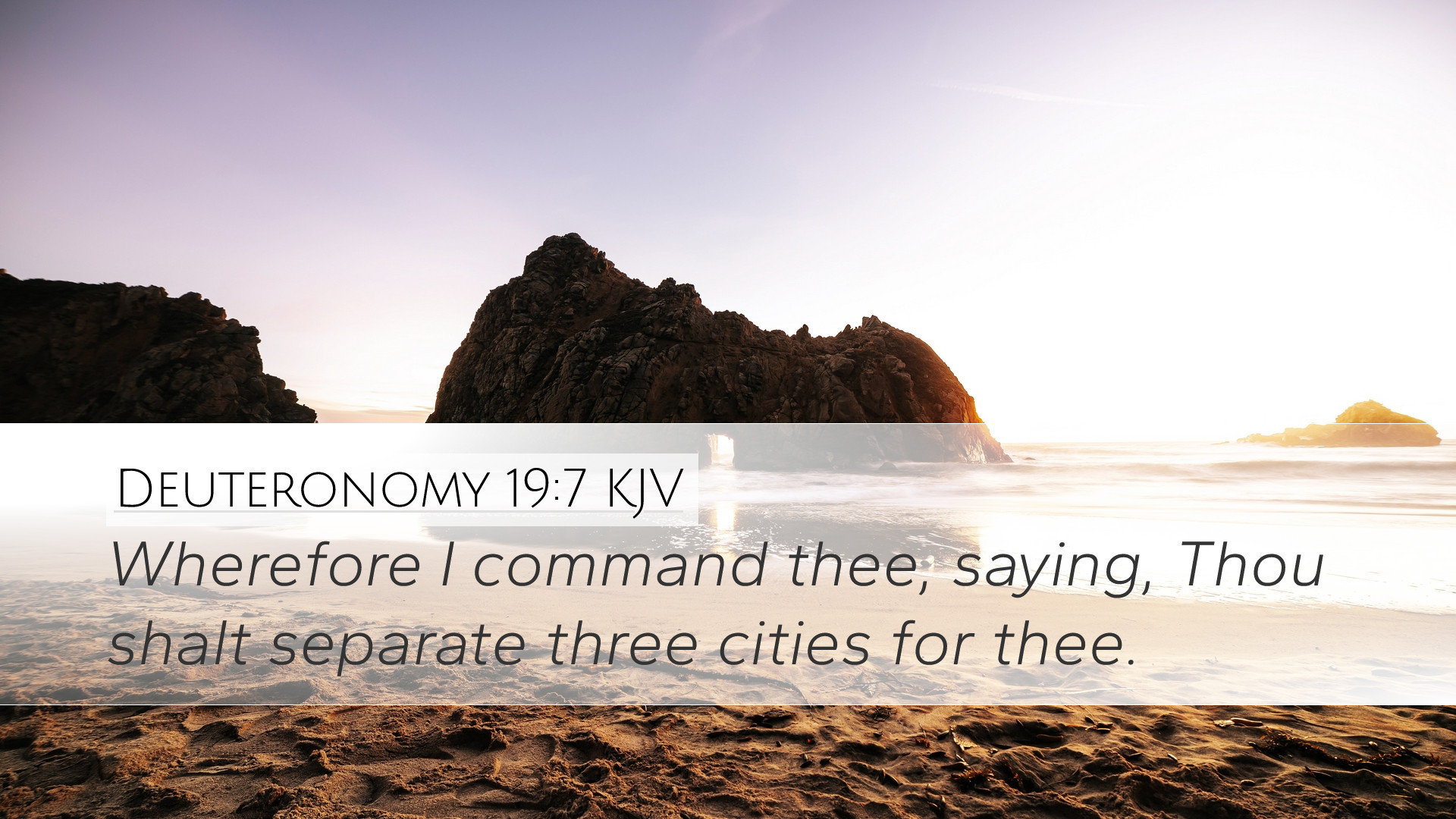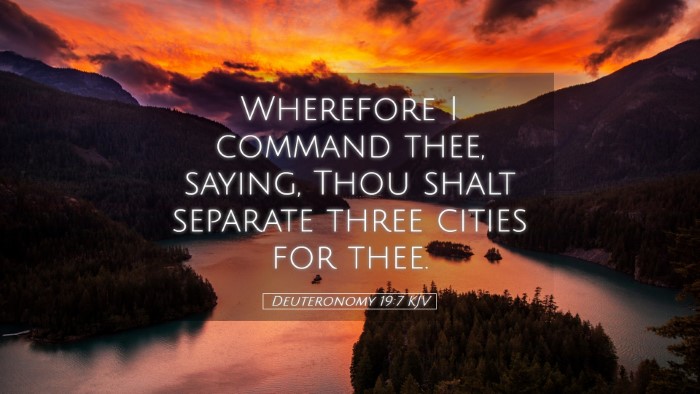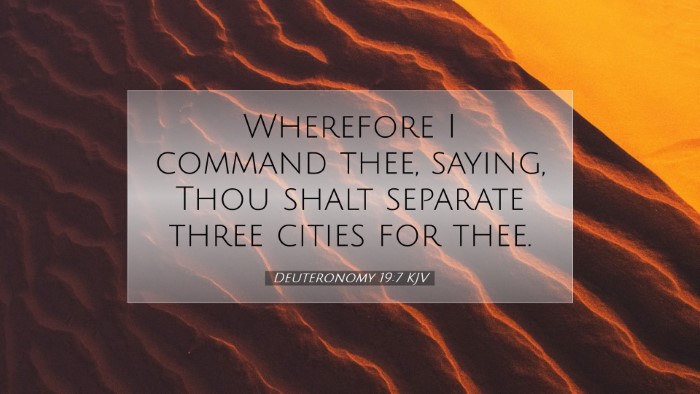Commentary on Deuteronomy 19:7
Deuteronomy 19:7 states: "Therefore I command you, saying, You shall separate three cities for you." This verse is situated within a broader context concerning the cities of refuge, designed to provide safe havens for those who commit unintentional manslaughter. The command to establish three cities serves a significant legal and social purpose in Israelite society.
Contextual Background
The cities of refuge are outlined primarily in three passages: Numbers 35, Deuteronomy 19, and Joshua 20. These cities were intended to offer asylum for individuals who accidentally caused the death of another person. The underlying principle of these cities illustrates God’s justice, mercy, and the sanctity of life.
Theological Significance
The arrangement of cities for refuge signifies God’s concern for justice. The requirement to set aside cities underscores the compassionate nature of the law, demonstrating that mistakes should be treated with understanding rather than immediate retribution.
- God's Mercy: The command to establish cities indicates God’s merciful provision for those in need of refuge.
- Principle of Innocence: The distinction between intentional and unintentional acts of violence highlights the moral and legal principles that govern human behavior.
Insights from Commentators
Matthew Henry
Matthew Henry emphasizes the necessity and significance of the cities of refuge in his exposition. He notes that these cities were a provision for the innocent and reflects on their function in safeguarding against the vengeful actions of the avenger of blood. Henry comments on the deeper spiritual lessons that arise from this passage, such as the need for shelter in Christ, who offers refuge from the guilt of sin.
Albert Barnes
Albert Barnes clarifies the rationale behind the specified number of cities. He argues that establishing three cities ensures accessibility for Israelites spread across the land. Barnes also illuminates how the cities of refuge serve as types or foreshadows of Christ. He states that just as the cities provided a means of protection, so does Christ provide sanctuary from the consequences of sin.
Adam Clarke
Adam Clarke provides a detailed analysis of the geographical implications of these cities. He discusses their strategic locations and accessibility for all the tribes of Israel. Clarke connects the mandate to establish these cities to the broader theme of community responsibility and care for one another within Israelite society, drawing insights into the social ethical implications of the text.
Practical Applications
The principles underlying Deuteronomy 19:7 extend beyond ancient Israelite context and hold relevance for contemporary faith communities. Pastors and theologians can draw several applications:
- Establishing Safe Spaces: Just as the cities of refuge provided access to safety, modern congregations should create environments that promote healing and support for those who have erred.
- Mediation of Justice: Churches can serve as mediators of justice and mercy, embodying Christ’s call to love and forgive.
- Understanding Unintentional Sin: This passage challenges the faithful to consider how grace applies in situations of unintentional wrongdoing among believers.
Conclusion
In conclusion, Deuteronomy 19:7 lays the foundation for exploring themes of justice, mercy, and community within the law. The insights from renowned commentators like Matthew Henry, Albert Barnes, and Adam Clarke shed light on the multifaceted significance of this verse. As we reflect on the principles surrounding the cities of refuge, may we be inspired to embody the love, mercy, and justice of God in our communities today.


